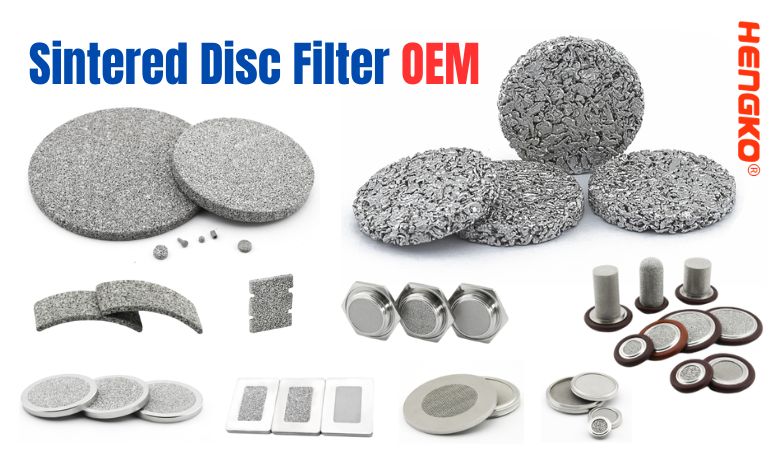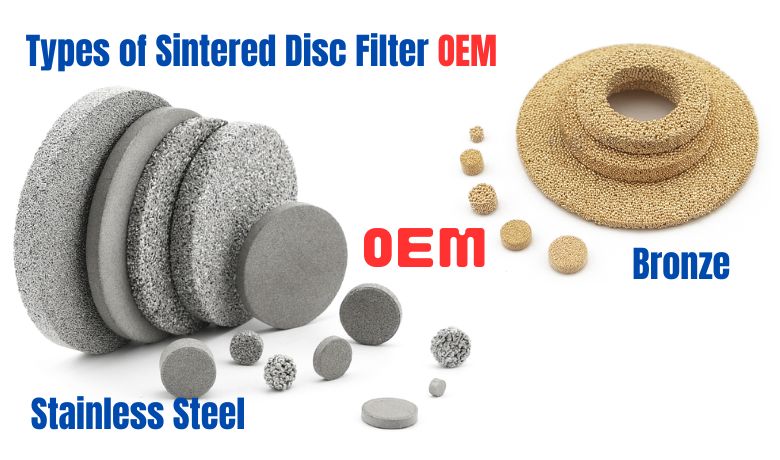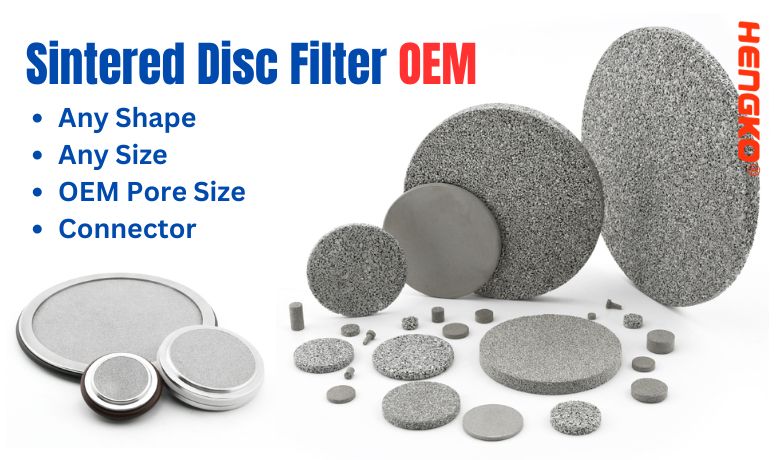-
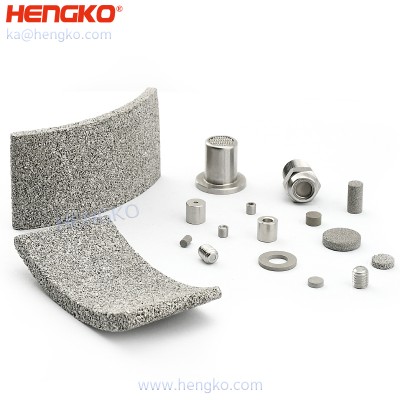
Micron replacement sintered stainless steel porous metal filter disc
Introducing HENGKO's High-Quality Stainless Steel Sintered Porous Metal Filters HENGKO is a leading manufacturer of stainless steel sintered porous metal f...
View Detail -
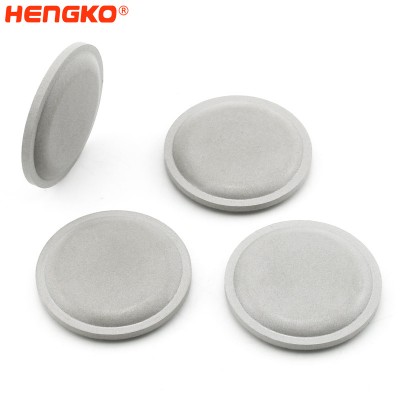
D6.1*H1.6 20um sintered porous metal stainless steel filter disc
Introducing HENGKO's Sintered Filter Disc: Unleash the Power of Precise Filtration! Are you looking for a sintered filter disc that offers exceptiona...
View Detail -

Porous sintered stainless stee filter disc stock for sale D10_H2 7-10um HENGKO
Introducing the HENGKO sintered disc filters, the ultimate solution to all your filtration needs! Our sintered disc filters are designed to trap solid part...
View Detail -

Stainless Steel Sintered Disc Filter Porous Metal Element for Gas and Liquid Filtration
Introducing the HENGKO sintered disc filters, the ultimate solution to all your filtration needs! Our sintered disc filters are designed to trap solid part...
View Detail -
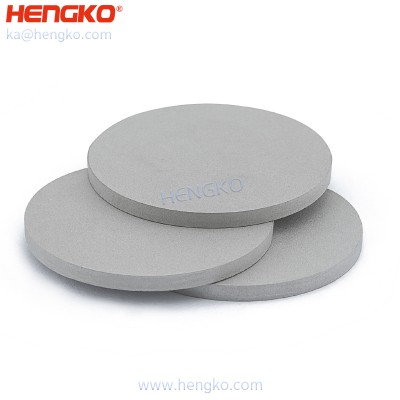
D9.5*H9.5 60-90um sintered porous metal filter disc used for filtration of fluids
Introducing the HENGKO sintered disc filters, the ultimate solution to all your filtration needs! Our sintered disc filters are designed to trap solid parti...
View Detail -

D18*H3 60-90um sintered porous metal filter disc stock for sale
Introducing the HENGKO sintered disc filters, the ultimate solution to all your filtration needs! Our sintered disc filters are designed to trap solid part...
View Detail -

porous metal filter disc stock for sale D12.1_H3 50-60um HENGKO
Introducing the HENGKO sintered disc filters, the ultimate solution to all your filtration needs! Our sintered disc filters are designed to trap solid part...
View Detail -
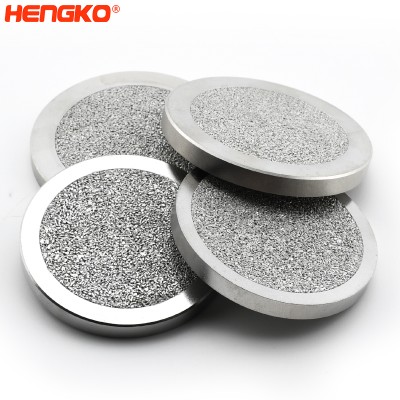
stainless steel filter disc supplier replacement microns sintered porosity metal powder...
Sintered Porous Metal Discs. similar to a metallic sponge. Porous Sintered Metal Filters consist of highly uniform, interconnected networks of pores with tor...
View Detail -
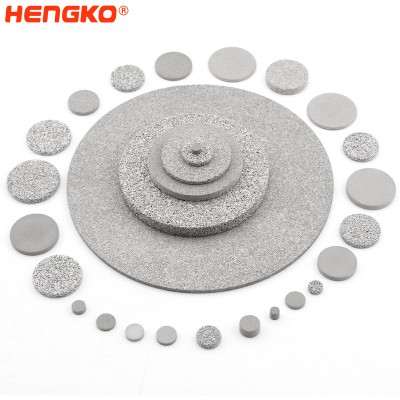
Porous metal ss sintered filter disc with fast flow rate for micron-sized filtration ap...
Introducing HENGKO's Sintered Disc Filters: Unleash the Power of Superior Filtration! When it comes to effective filtration, HENGKO's sintered disc filters ...
View Detail -
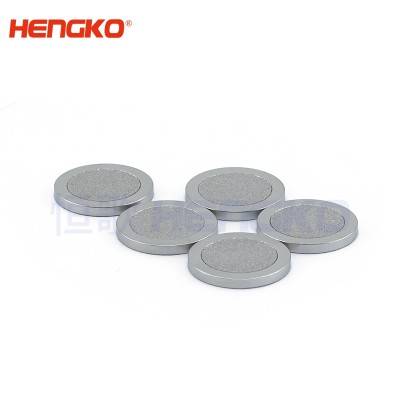
Large stock fast flow rate micron sintered SS 316L porosity backwash in-line gasket st...
Product Describe HENGKO sintered disc filters consist of highly uniform, interconnected networks of pores with tortuous paths that trap solid particles in g...
View Detail -
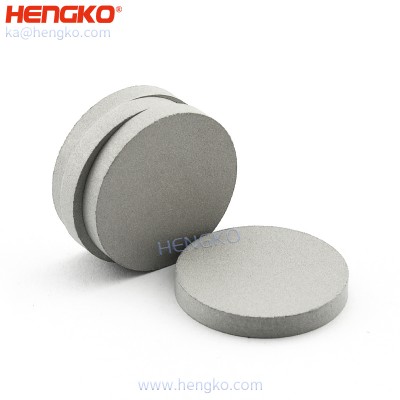
Sintered 0.2-120 micron 316L stainless steel metal powder filter disc
Product Describe HENGKO stainless steel filter disc is made by sintering 316L powder material or multilayer stainless steel wire mesh at high temperatures. T...
View Detail -
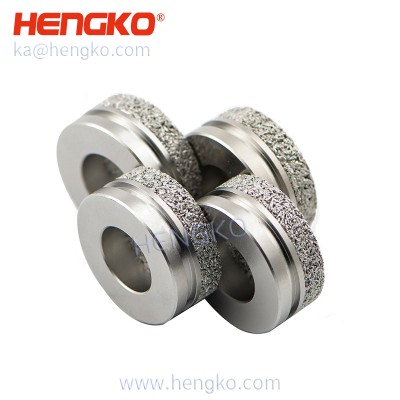
Customized size seamless sintered porous metal stainless steel 304/316L powder sinterin...
Introducing HENGKO's Sintered Filter Disc for Helium Leak Detectors: Unparalleled Performance and Efficiency! Product Features:- High Filtration Effi...
View Detail -
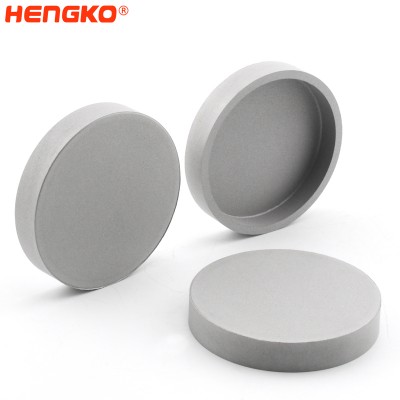
Professional manufacturer 5 20 microns porous metal sus 316l ss stainless steel sintere...
HENGKO Stainless Steel Filter Disc – High Performance Filtration Solution HENGKO’s stainless steel filter disc is the ultimate solution for all your ...
View Detail -
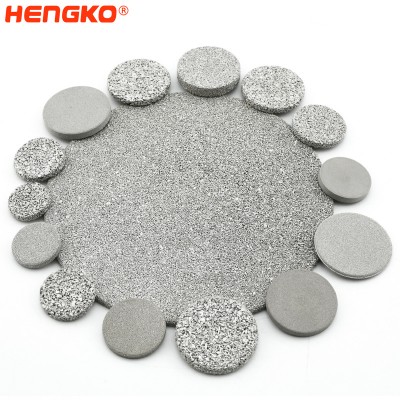
Preferential supply 0.2-120um sintered 316 stainless steel porous metal backwash strain...
Introducing the HENGKO Stainless Steel Filter Disc, the ultimate solution for all your environmental protection, petroleum, natural gas, chemical, environme...
View Detail -

Factory direct sale sintered microporous metal stainless steel 316L filter strainer dis...
Product Describe HENGKO stainless steel filter disc is made by sintering 316L powder material or multilayer stainless steel wire mesh at high temperatures. T...
View Detail -
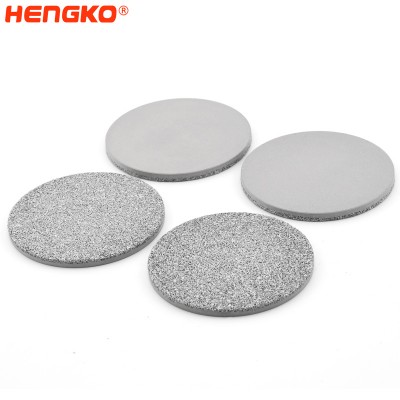
Manufacture sold and factory price 0.2 0.5 2 5 10 15 20 40 60 90 100 micron porosity ...
HENGKO stainless steel filter disc is made by sintering 316L powder material or multilayer stainless steel wire mesh at high temperatures. They have been wid...
View Detail -
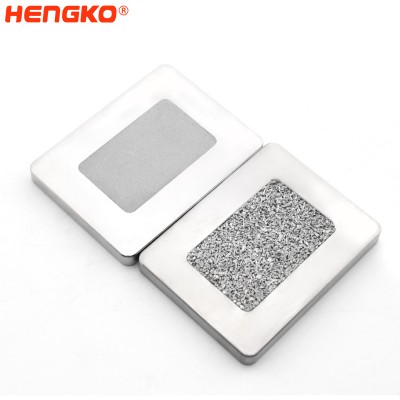
Customized sintered powder SS 316L stainless steel filter disc, 0.2 5 7 10 30 40 50 70 ...
HENGKO stainless steel filter disc is made by sintering 316L powder material or multilayer stainless steel wire mesh at high temperatures. They have been wid...
View Detail -
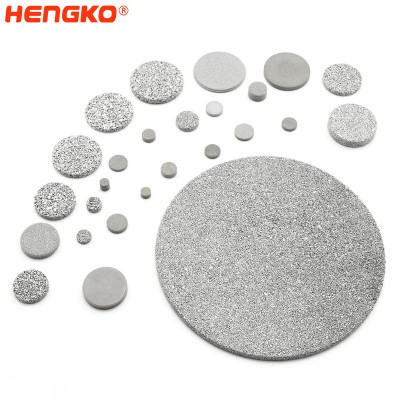
Custom-Make microns sintered porous stainless steel metal 316L filter disc used for ind...
Product Describe HENGKO is proud to offer a wide array of filter elements that cater to the unique needs of each customer. Our team of experts can create cus...
View Detail -
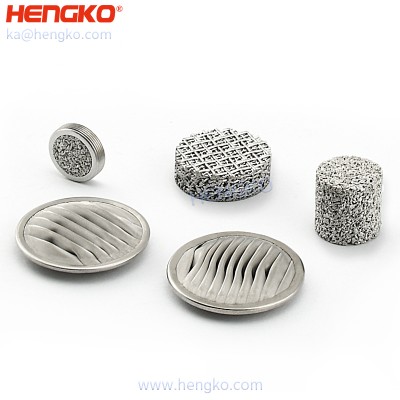
small sintered stainless steel mesh disc filter for use on inkjet Printers
Sinter wire mesh filters are usually used for purification and filtration of liquid and gas, separation and recovery of solid particles, transpiration coolin...
View Detail -
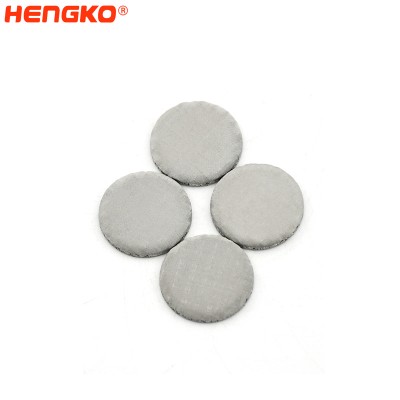
Catalyst Filtration with Leaf Filters Sintered Metal Mesh Filter Disc for the Recovery ...
HENGKO manufactures filter elements in a broad range of materials, sizes, and fittings so they can be easily specified with the characteristics and configura...
View Detail
Types of Sintered Disc Filter
Sintered disc filters are widely used in various industrial applications due to their durability, high filtration efficiency,
and ability to operate under extreme conditions. Below are the common types of sintered disc filters:
1. Stainless Steel Sintered Disc Filters
*Material: Typically made from 316L stainless steel.
*Applications: Used in chemical processing, food and beverage industries, and gas filtration due to their resistance
to corrosion and high temperatures.
*Features: Excellent mechanical strength, corrosion resistance, and can be used in both liquid and gas filtration.
2. Bronze Sintered Disc Filters
*Material: Composed of sintered bronze particles.
*Applications: Often used in pneumatic systems, lubrication systems, and hydraulic systems.
*Features: Good resistance to wear and can operate in environments where oil and other lubricants are present.
3. Nickel Sintered Disc Filters
*Material: Made from sintered nickel particles.
*Applications: Suitable for high-temperature environments and used in the aerospace and petrochemical industries.
*Features: Excellent thermal conductivity and resistance to oxidation.
4. Titanium Sintered Disc Filters
*Material: Constructed from sintered titanium particles.
*Applications: Ideal for pharmaceutical, biotechnology, and medical applications due to their biocompatibility
and corrosion resistance.
*Features: High strength-to-weight ratio, excellent corrosion resistance, and suitable for highly corrosive environments.
5. Hastelloy Sintered Disc Filters
*Material: Made from Hastelloy alloys.
*Applications: Used in chemical processing and harsh environments where resistance to acid and
other corrosive substances is crucial.
*Features: Exceptional resistance to pitting, stress corrosion cracking, and high-temperature oxidation.
6. Inconel Sintered Disc Filters
*Material: Composed of Inconel alloys.
*Applications: Commonly used in the aerospace, marine, and chemical processing industries.
*Features: Excellent resistance to high temperatures and oxidation, making them suitable for extreme environments.
7. Monel Sintered Disc Filters
*Material: Made from Monel alloys, primarily nickel and copper.
*Applications: Used in marine, chemical, and petroleum industries.
*Features: High strength and excellent resistance to seawater corrosion, making them ideal for marine applications.
8. Porous Ceramic Sintered Disc Filters
*Material: Made from sintered ceramic materials.
*Applications: Used in filtration of aggressive chemicals, hot gases, and in water treatment.
*Features: Excellent chemical stability, high thermal resistance, and can operate in highly acidic or basic environments.
Each type of sintered disc filter has its own unique properties that make it suitable for specific applications,
depending on factors like temperature, chemical compatibility, and mechanical strength.
Main Features of Porous Sintered Stainless Steel Disc
1. High Mechanical Strength
- Feature: These discs are known for their excellent mechanical strength, allowing them to withstand high pressures and mechanical stresses.
- Benefit: Suitable for applications involving harsh operational conditions, such as high-pressure filtration systems.
2. Corrosion Resistance
- Feature: Made from stainless steel, typically 316L, these discs exhibit high resistance to corrosion and oxidation.
- Benefit: Ideal for use in chemically aggressive environments, including acidic, alkaline, and saline conditions.
3. Temperature Resistance
- Feature: Sintered stainless steel discs can operate at a wide range of temperatures, from cryogenic to high-temperature environments.
- Benefit: Suitable for applications that require thermal stability, such as gas filtration in high-temperature processes.
4. Uniform Pore Structure
- Feature: The sintering process creates a uniform and precise pore structure throughout the disc.
- Benefit: Provides consistent filtration performance, ensuring reliable particle retention and fluid permeability.
5. Reusability
- Feature: These discs can be cleaned and reused multiple times without losing their structural integrity or filtration efficiency.
- Benefit: Cost-effective over the long term, as they reduce the need for frequent replacements.
6. Customizable Pore Size
- Feature: The pore size of the discs can be customized during the manufacturing process, ranging from a few microns to several hundred microns.
- Benefit: Allows for tailored filtration solutions to meet specific application requirements, whether for fine or coarse filtration.
7. Chemical Compatibility
- Feature: Sintered stainless steel is compatible with a wide range of chemicals, including solvents, acids, and gases.
- Benefit: Versatile for use in various industries such as chemical processing, pharmaceuticals, and food and beverage.
8. High Permeability
- Feature: Despite their high filtration efficiency, these discs offer high permeability, allowing for efficient flow rates of liquids and gases.
- Benefit: Enhances process efficiency, especially in applications requiring high throughput without compromising filtration quality.
9. Durability and Longevity
- Feature: The robust nature of stainless steel, combined with the strength provided by the sintering process, results in a highly durable product.
- Benefit: Long service life reduces maintenance and replacement costs, making them a reliable choice for long-term applications.
10. Thermal Shock Resistance
- Feature: Sintered stainless steel discs can withstand sudden changes in temperature without cracking or losing structural integrity.
- Benefit: Suitable for applications with varying thermal conditions, such as in aerospace or industrial gas processes.
11. Non-Shedding
- Feature: The solid and stable structure of the sintered disc prevents shedding or particle release.
- Benefit: Ensures that the filtered product remains free of contamination, critical for applications in pharmaceuticals and food processing.
12. Easy to Fabricate and Integrate
- Feature: These discs can be easily fabricated into various shapes and sizes, and can be integrated into different systems.
- Benefit: Provides flexibility in design and compatibility with existing systems or equipment, making them adaptable to a wide range of applications.
These features make porous sintered stainless steel discs a popular choice in demanding industrial applications, where durability, reliability, and efficiency are paramount.
Performance Comparison of Different Sintered Metal Disc
Performance Comparison of Sintered Metal Discs
| Material | Mechanical Strength | Corrosion Resistance | Temperature Resistance | Chemical Compatibility | Typical Applications |
|---|---|---|---|---|---|
| Stainless Steel (316L) | High | High | High (up to 600°C) | Excellent | Chemical processing, food & beverage, gas filtration |
| Bronze | Moderate | Moderate | Moderate (up to 250°C) | Good | Pneumatic systems, lubrication systems |
| Nickel | High | High | Very High (up to 1000°C) | Excellent | Aerospace, petrochemical industries |
| Titanium | High | Very High | High (up to 500°C) | Excellent | Pharmaceutical, biotechnology, medical applications |
| Hastelloy | High | Very High | Very High (up to 1093°C) | Excellent | Chemical processing, harsh environments |
| Inconel | Very High | Very High | Extremely High (up to 1150°C) | Excellent | Aerospace, marine, chemical processing |
| Monel | High | High | High (up to 450°C) | Good | Marine, chemical, petroleum industries |
| Porous Ceramic | Moderate | Very High | Very High (up to 1600°C) | Excellent | Filtration of aggressive chemicals, hot gases, water treatment |
| Alumina | High | High | Very High (up to 1700°C) | Excellent | High-temperature applications, chemical inertness required |
| Silicon Carbide | Very High | High | Extremely High (up to 1650°C) | Excellent | Abrasive and corrosive environments |
FAQ
What are porous sintered stainless steel discs?
Porous sintered stainless steel discs are specialized filtration components made by sintering stainless steel metal powders into a solid structure with interconnected pores. The sintering process fuses the metal particles together, creating a rigid, porous material ideal for filtration, separation, and diffusion applications. These discs offer a combination of mechanical strength, corrosion resistance, and high-temperature tolerance, making them suitable for use in various industries such as food, pharmaceutical, and chemical processing
What are the key features and benefits of porous sintered stainless steel discs?
- Exceptional Durability: High mechanical strength and rigidity ensure long-lasting performance.
- Superior Corrosion Resistance: Resistant to a wide range of chemicals, including acids, alkalis, and abrasives.
- Excellent Heat Tolerance: Suitable for operation in temperatures from -200°C to 600°C.
- Precise Filtration: Available in multiple filtration grades to meet specific accuracy requirements.
- High Dirt Capacity: Efficiently captures and holds contaminants.
- Easy Maintenance: Simple to clean and reuse, minimizing downtime.
- Customization Options: Can be tailored to fit various shapes, sizes, and material needs.
- Enhanced Rigidity: Single or multi-layer designs offer increased structural strength.
What materials are used to make porous sintered stainless steel discs?
Porous sintered stainless steel discs are primarily made from stainless steel materials, such as 316L, 304L, 310S, 321, and 904L.
These alloys are chosen for their excellent corrosion resistance, strength, and durability. Other materials like titanium, Hastelloy,
Inconel, and Monel can also be used to meet specific requirements.
What filtration grades are available for porous sintered stainless steel discs?
Porous sintered stainless steel discs are available in a wide range of filtration grades, from 0.1 μm to 100 μm, to suit various filtration needs.
The filtration grade is determined by the size of the interconnected pores in the sintered metal structure. Finer filtration grades, such as 0.1 μm
or 0.3 μm, are suitable for applications requiring high purity and the removal of fine particles, while coarser grades like 50 μm or 100 μm are used
for pre-filtration or when a higher flow rate is needed
How are porous sintered stainless steel discs manufactured?
Porous sintered stainless steel discs are manufactured through a multi-step process:
1.High-quality stainless steel powders are selected and mixed according to the desired composition and properties.
2.The metal powders are compacted into the desired shape and size using specialized equipment.
3.The compacted discs are then sintered in a controlled atmosphere at high temperatures, typically between 1100°C to 1300°C.
4.During sintering, the metal particles fuse together, creating a solid structure with interconnected pores.
5.The sintered discs are then inspected, cleaned, and packaged for delivery.
What are the common applications of porous sintered stainless steel discs?
Porous sintered stainless steel discs find applications in a wide range of industries, including:
1.Chemical processing: Filtration of corrosive liquids and gases
2.Pharmaceutical and biomedical: Sterile filtration, cell separation, and bioreactor application
3.Food and beverage: Filtration of liquids and gases in food processing
4.Aerospace and defense: Filtration of hydraulic fluids and fuels
5.Automotive: Filtration of lubricants and coolants
6.Water treatment: Filtration of water and wastewater
How do I clean and maintain porous sintered stainless steel discs?
Porous sintered stainless steel discs can be cleaned using various methods,
depending on the type and level of contamination:
1.Backflushing or backwashing: Reversing the flow direction to dislodge and remove trapped particles
2.Ultrasonic cleaning: Using high-frequency sound waves to remove contaminants
3.Chemical cleaning: Soaking the discs in a detergent solution to loosen and remove particles
4.Circulation cleaning: Pumping a cleaning solution through the discs until they are clean
Regular cleaning and maintenance help to extend the lifespan of the discs and ensure optimal performance.
Can porous sintered stainless steel discs be customized to meet specific requirements?
Yes, porous sintered stainless steel discs can be customized to meet specific requirements.
Parameters such as diameter, thickness, material, filtration grade, and shape can be adjusted to
suit the needs of various applications and processes.
The discs can also be encapsulated in different metal or non-metal parts for specific uses
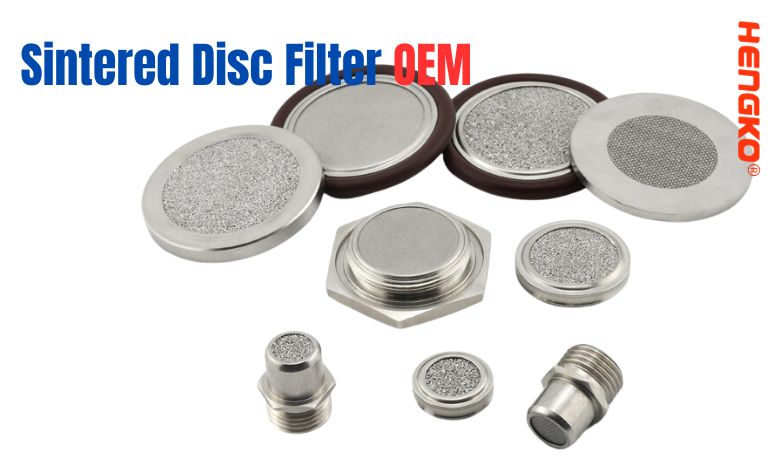
Explore Custom Solutions with HENGKO!
Whether you're seeking detailed information or need guidance on choosing the right
sintered stainless steel discs, our team is ready to assist you with perfect filter solutions.
Contact us at ka@hengko.com for personalized service and expert advice tailored to your needs.
